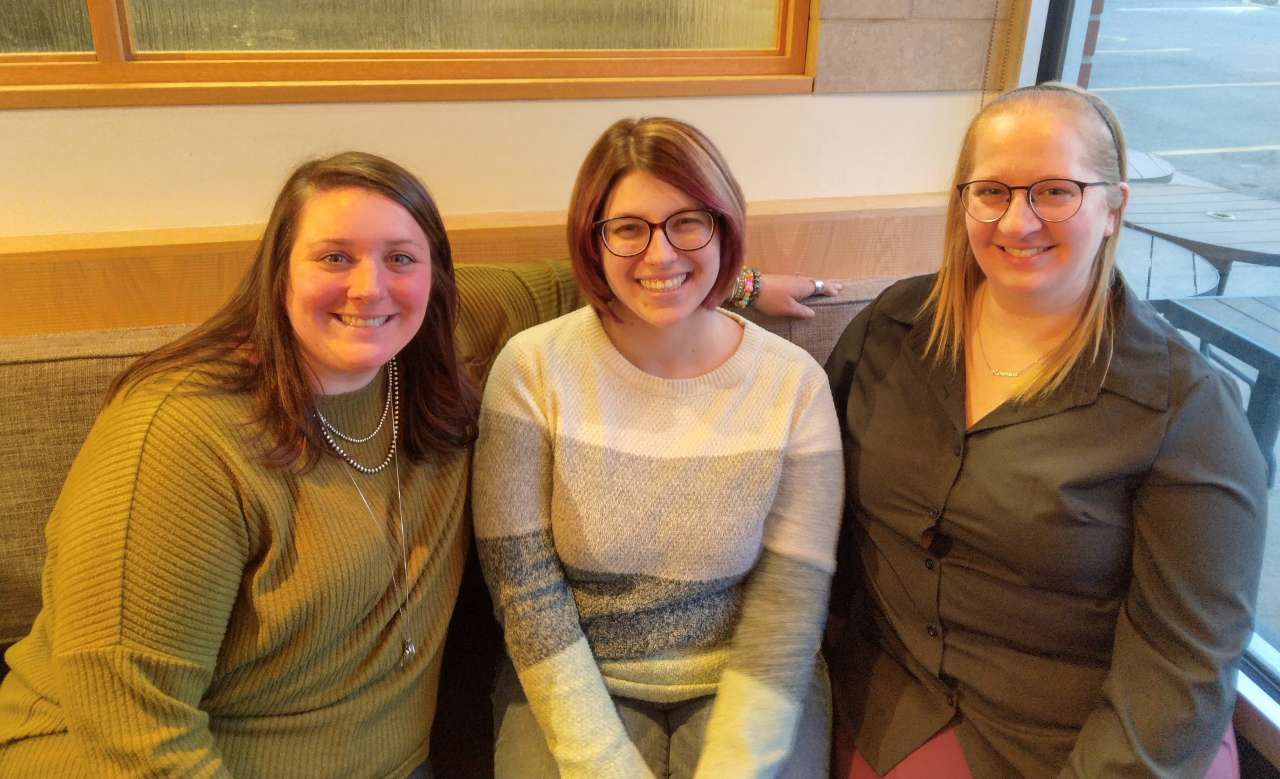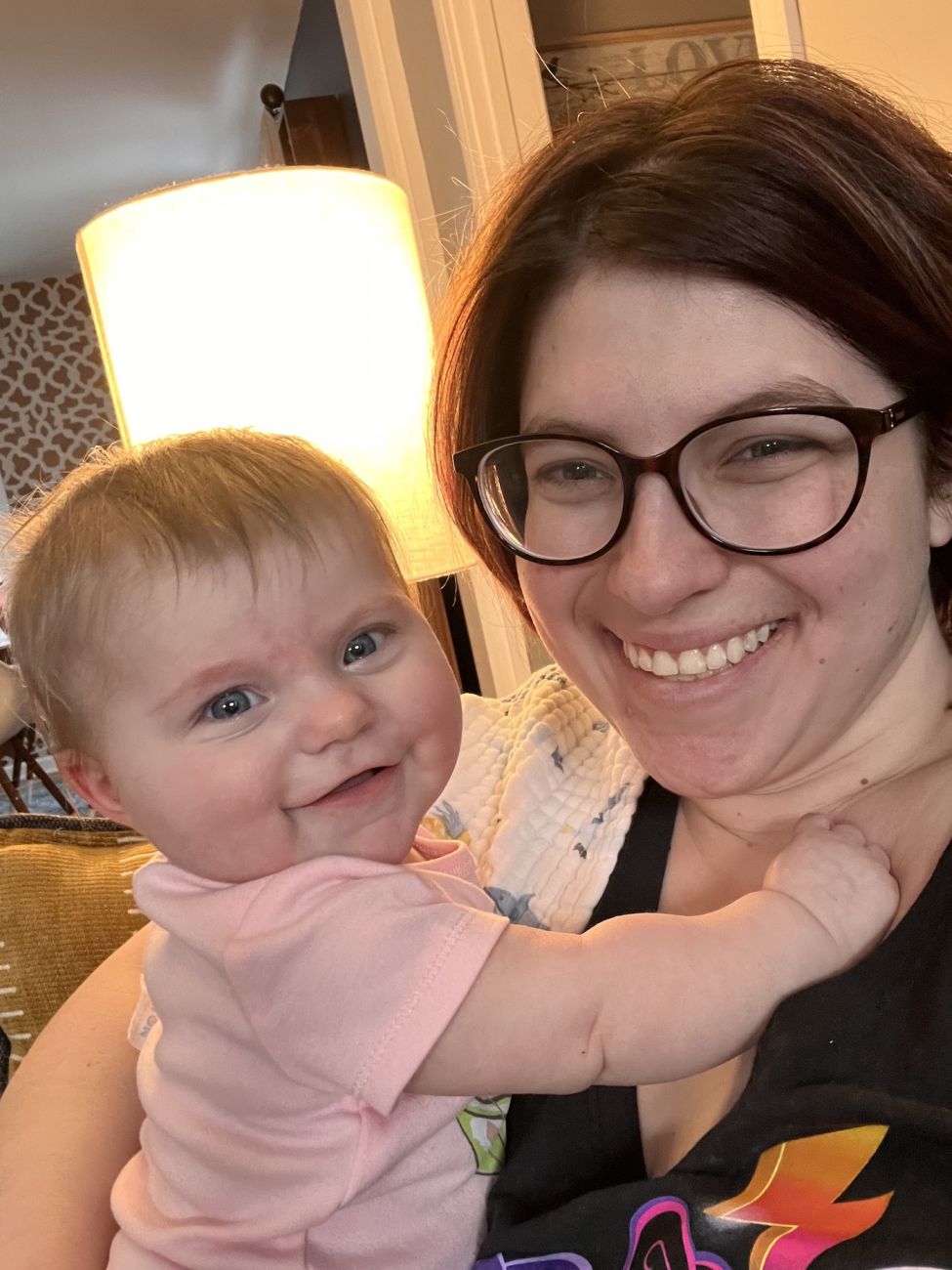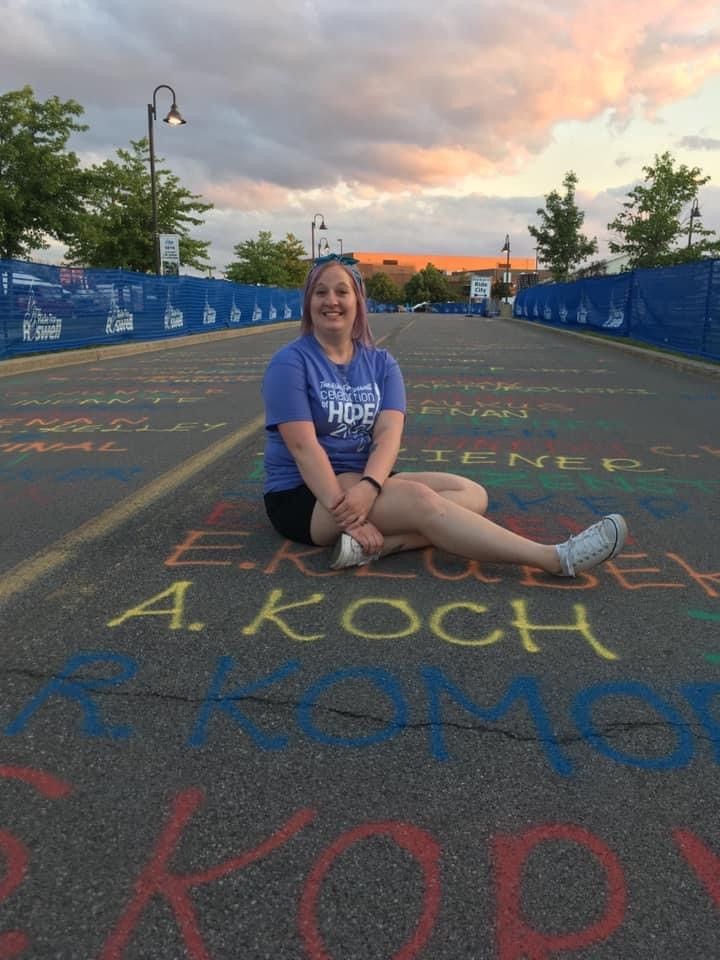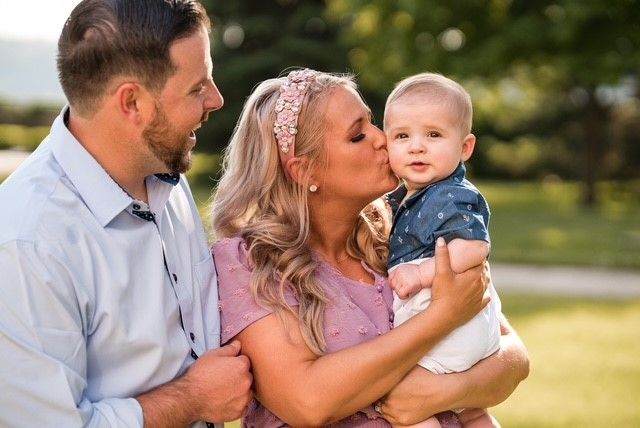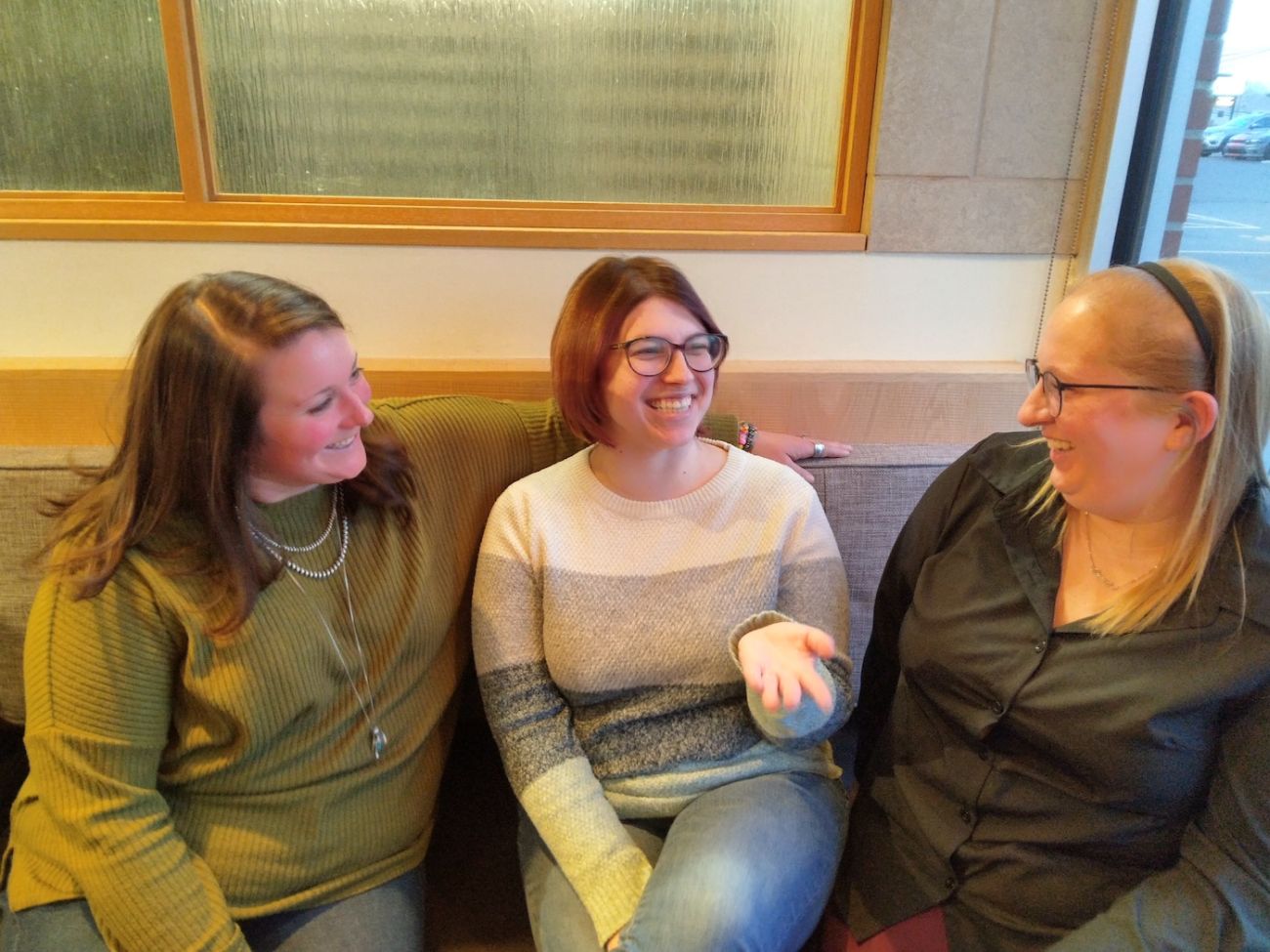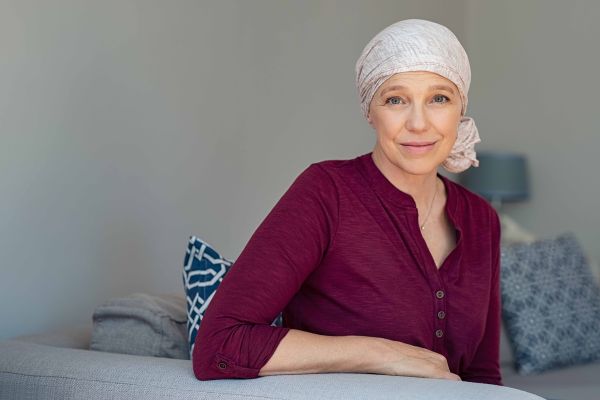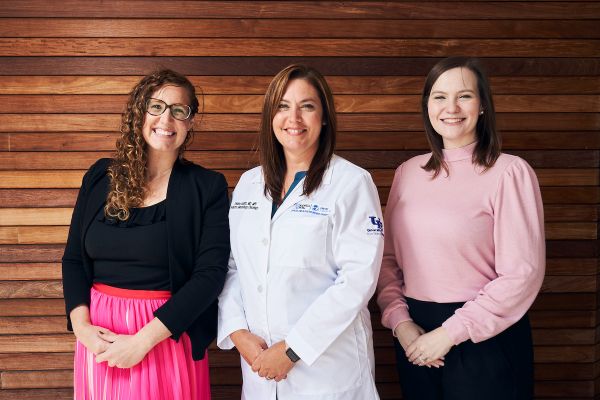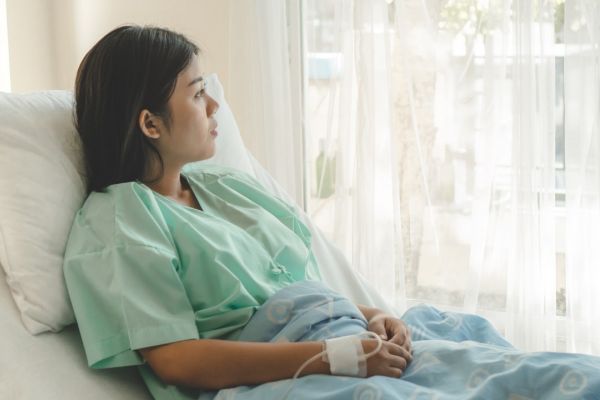Mary Loliger had achieved her dream of becoming a “fabulous city girl,” living in New York City after graduating from college when she started experiencing pain she initially thought to be associated with endometriosis.
Allie Koch had a sudden “excruciating pain” she thought was caused by other physical ailments she had dealt with for years.
Alicia Spoth had a routine blood test for medication.
Ashley Hardy felt a lump but her first doctor wasn’t too worried.
None of the four women expected to hear they had cancer — but all of them went on to receive treatment at Roswell Park Comprehensive Cancer Center. To various extents, they also all participated with the Roswell Park Young Adult Program, accessing patient and survivorship care, support groups, and attending events and other activities that connected them with people who understood their struggles — without being reminded that they were, in fact, cancer patients.
In honor of Young Adult Cancer Awareness Month, they shared their reflections on the transition from patient to survivor.
Nobody this young expects cancer
“I had surgery for endometriosis, that’s how they found it. They took my appendix out because it looked a mess. We didn’t know until the labs came back that it was not endometriosis on the appendix. My surgeon had never seen this before,” Mary says.
A call to a referring physician, and lots of reading later, she was diagnosed with a stage 1 carcinoid tumor, and the surgery she had initially managed to get all the cancerous cells. Ten years later, Mary is still cancer-free and faces a low risk of recurrence. “I jumped from ‘pre-viving’ to survivorship,” she says.
Carcinoid tumors are rare and tend to occur in older adults, not young adults. Other symptoms Mary had often are associated primarily with conditions like endometriosis and irritable bowel syndrome, which can lead to misdiagnosis among patients with these tumors.
Alicia was not feeling any symptoms when she went in for a routine blood test, ordered because of a medication she was taking at the time.
“My dermatologist called me and said you need to go to the ER,” she recalls. “I was living in Ohio at the time. I checked myself into the ER and they said, ‘we think you have cancer but we’re not hematologists, so we can’t confirm it.’”
She drove back to New York for the weekend, to help with fair preparations at her family farm in Corfu, then went to see a hematologist the following Monday. “I saw this doctor and he said you have to go to the hospital this very minute. I said, ‘I can’t do that. I have work to do. I have corn to sell. I have to go scout fields. The county fair is coming.’ He said ‘No, you have to go right now.’”
Alica was diagnosed with acute myeloid leukemia. In addition to having to spend a month at Roswell Park, she was told she couldn’t recover on her family’s farm, which she was told was “the worst thing you can do if you have a severely compromised immune system” because of the animal dander and waste. Alicia’s nurses also told her during her last round of chemotherapy that she would not be able to raise pigs anymore, something she had done since childhood.
“I laid in the bed in 5 West, on the right side of the wing, sobbing,” Alicia says.
Persevering through the hardships
Allie, on the other hand, had been experiencing chronic back pain since middle school. At one point, doctors thought she might have spinal scoliosis. “One day I was at work and all of a sudden, I was in excruciating pain. I called my mom and told her something was wrong. She worked in my doctor’s office and said to come in for an ultrasound. Thought it was kidney stones or my appendix, so they sent me to the hospital. After some tests and scans – it was so chaotic – the doctor came in in tears. He couldn’t tell me what the tumor was inside of me, he just knew there was one.”
Allie later had a six pound, 10-inch mass removed and received a diagnosis of a germ cell teratoma. The form of ovarian cancer had caused one of her ovaries to expand and push on her spine, causing her not only back pain but migraines for years. “There are lot of different things that other ovarian cancer patients I’ve met have said were symptoms. I had them. I used to get hiccups all the time. That’s linked with ovarian cancer from the tumor pressing on your lungs,” she explains.
She needed nine rounds of chemotherapy after her surgery, some of which was administered at half-doses: “I did not do well with chemo. None of the anti-nausea things worked for me. I was so dehydrated that everything had to be stretched out,” Allie says.
For Ashley, a self-exam led to the discovery of a lump on her left breast. “Other than that, I felt great, and I had no other symptoms. I went to my doctor who told me that because I was so young – I was 28 – she believed it to be a fibroadenoma and I could always wait six months to see,” she says. “I couldn’t shake the feeling I had to get it checked out. I advocated for a biopsy and went to Roswell Park where my feelings were immediately validated.”
She was diagnosed with stage 2 breast cancer and went through chemotherapy, radiation, surgery and hormone therapy. “I remember time standing still and thinking that this had to be a bad dream,” she says. “I decided to not give up and to fight, no matter what.” She had a double mastectomy with reconstruction; her boyfriend at the time shaved his head in solidarity when she decided to shave her head. When it was time to ring the Victory Bell, her doctors and Roswell Park team were there to celebrate – and watch as her then-boyfriend proposed.
You have time for a second opinion
You need a comprehensive cancer center, and doctors with experience in treating cancer in young adults.
Reclaiming and rethinking life after cancer
Since then, all four women have gone on to build successful, happy lives: Alicia still works on her family farm and was able to go back to raising pigs, in addition to becoming a mom. Allie is now a lead teller at a credit union, Ashley teaches fourth grade and Mary works in internal communications at Roswell Park and has a daughter who is nearly a year old.
When asked their advice for other young adult patients, or to their younger selves, there are two themes: Trust that you will get through this and learn to live in the moment.
“My biggest thing is just to take your time.” Allie says. “I took a week off after chemo, and then that Monday I decided it was time to go back to work. And that was dumb. I was exhausted. I probably should have taken at least another week or two off before going back to work.”
“If you feel okay, there's a sense you want to just rush and do things because you can,” Mary adds. “That's okay, in general. But you can take your time.”
Ashley was at first hesitant to talk about cancer at all, but now heads fundraising efforts at her school, sharing her cancer experience with her students in the process.
“One student said their mom had cancer, another said their grandma had cancer and we just started talking in the purest form about how cancer affects all of us. I just said it, ‘I went through this too,’ and then I was pulling up pictures of me with no hair,” says Ashley, who is also now a Roswell Park Cancer Coach. “One little girl said, ‘you look healthy now, you look beautiful now,’ and a little boy said ‘but you looked beautiful then too.’ Ever since then, I think this is what I’m supposed to do. I’m supposed to continue that education.”
Alicia admits she lives with a fear— not that her cancer will return, but that she might not fulfill her second chance at life. “I wonder if this is enough, and why I got this second chance and not someone else,” she says. “I don't think about my own body and cancer, but I do think about my life and if I look back, will it be enough? It has to be enough for only me, but for some reason, getting a second chance, thanks to modern medicine and God, I'm like, there's something I have to fulfill. That's why I'm here.”
Beauty in the journey
Their advice to newly diagnosed young adults is to trust their doctors, advocate for their futures and to be ready to accept a new normal, a life that might look a little different than what they expected.
“There’s going to be setbacks. But you’ll get back up. You get back up to fight. It’s a lot of perseverance,” Ashley says.
“All the dreams I had when I was sick are now coming true,” Alicia says. “There’s beauty in the really hard journey.”
Editor’s Note: Cancer patient outcomes and experiences may vary, even for those with the same type of cancer. An individual patient’s story should not be used as a prediction of how another patient will respond to treatment. Roswell Park is transparent about the survival rates of our patients as compared to national standards, and provides this information, when available, within the cancer type sections of this website.
